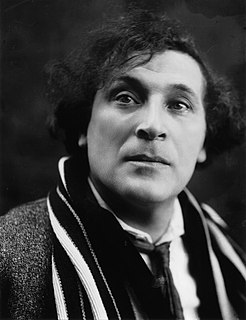A Quote by Blaise Pascal
Man is obviously made for thinking. Therein lies all his dignity and his merit; and his whole duty is to think as he ought.
Related Quotes
Once in his life, a man ought to concentrate his mind upon the remembered earth, I believe. He ought to give himself up to a particular landscape in his experience, to look at it from as many angles as he can, to wonder about it, to dwell upon it. He ought to imagine that he touches it with his hands at every season and listens to the sounds that are made upon it. He ought to imagine the creatures there and all the faintest motions of the wind. He ought to recollect the glare of noon and all the colors of the dawn and dusk.
Nothing of that which is conducive to help man, collectively or individually, to live not "happily" but less unhappily in this world, ought to be indifferent to the Theosophist-Occultist. It is no concern of his whether his help benefits a man in his worldly or spiritual progress; his first duty is to be ever ready to help if he can, without stopping to philosophize.
The average man votes below himself; he votes with half a mind or a hundredth part of one. A man ought to vote with the whole of himself, as he worships or gets married. A man ought to vote with his head and heart, his soul and stomach, his eye for faces and his ear for music; also (when sufficiently provoked) with his hands and feet. If he has ever seen a fine sunset, the crimson color of it should creep into his vote. The question is not so much whether only a minority of the electorate votes. The point is that only a minority of the voter votes.
Let no one imagine that he will lose anything of human dignity by this voluntary sell-out of his all to his God. He does not by this degrade himself as a man; rather he finds his right place of high honor as one made in the image of his Creator. His deep disgrace lay in his moral derangement, his unnatural usurpation of the place of God. His honor will be proved by restoring again that stolen throne. In exalting God over all, he finds his own highest honor upheld.
By His gracious condescension God became man and is called man for the sake of man and by exchanging His condition for ours revealed the power that elevates man to God through his love for God and brings God down to man because of His love for man. By this blessed inversion, man is made God by divinization and God is made man by hominization. For the Word of God and God wills always and in all things to accomplish the mystery of His embodiment.






































